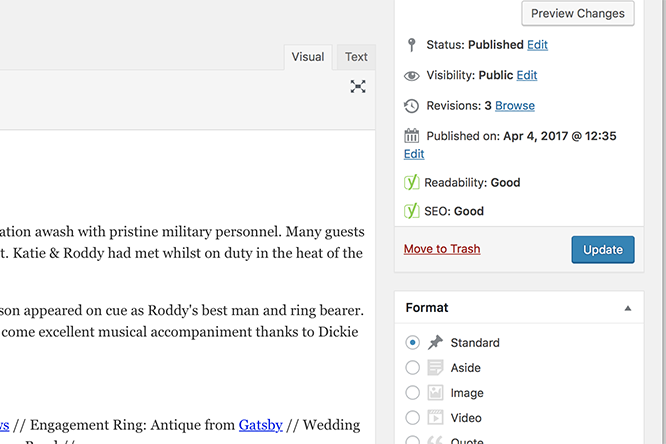
How Long Does SEO Take To Work In 2017 is the billion dollar question on everyones lips. Though before I start to answer the gazillion dollar question, we should first determine the type of SEO we are looking to rank for? And let's be honest here. There's only one search engine that matters these days. That of course is Google. At last count, Google's market share globally stood at a whopping 77%. Sadly that leaves the likes of Bing and Yahoo for dust.
SEO: The Different Types of Search Engine Optimisation
Okay first of all there is On Page SEO brilliantly blogged about here by Backlinko founder Brian Dean. Then there is Off Page SEO helpfully explained by search engine guru Neil Patel. There is also Homepage SEO neatly summarised by Yoast founder Joost de Valk. And what about the SEO for Google My Business (aka Google Places)? If you are a newcomer to this strange new world of search, prepare for a bumpy ride!! Search Engine Optimisation is a complicated beast, as is our friend the search engine itself.
So, How Long Does SEO Take To Work In 2017?
Let's start with the On Page optimisation first. Let's assume your post includes all of the following elements. Title tag, one H1 tag, a few H2 tags and some optimised photos correctly labelled with your keywords. You will also ideally write 300+ words (including synonyms and long tail keywords). Include some outbound links, a few internal links and social sharing buttons. That should be enough. Then how long it takes to work will depend a great deal on how visible you are on Google's radar.
If you are one of the big guns who blogs daily, perhaps even hourly, then it's not unusual for one of their posts to show up almost immediately on Google. A great example would be a news aggregator like the BBC, Because the BBC are heavy users and are posting great content on a very regular basis, Google regularly crawls their website. This means their content will appear in the SERPS within minutes of going live. Their site is one of the most popular websites in the world so it's quite unsurprising that their SEO is so effective.
On Page SEO
That said, if you're only blogging once a week like I am with my wedding blog, then it's going to take me a lot longer to show up in the SERPS than the BBC. No surprises there. However, even if I follow all the Moz guidelines of On Page SEO, there are still no guarantees I'll appear on page one! Because, whether or not I will appear on Page 1 of Google for my keyword search will depend on a multitude of factors.
So how can you improve your chances of SEO for On Page content search? Write great, unique content that people want to read, and ideally share. The more eyes that view your blog post the better and that comes from writing stuff people want to read. It's about being of service. Supplying content that is helping people out. And crucially, when you write, you should be writing for humans first and for robots second. Though a word of warning about keyword stuffing. If your content is not authentic and not written for humans, sadly it will only ever be read by the Google bots. The bots will scan the text, determine that it's spammy and slap a penalty on your post. So instead of appearing on page 1, Google will deliberately put your content on page 101 to penalise you. Don't do it! It's not worth it.
My Search Engine Optimisation Story
I use Yoast to guide me when writing my content using WordPress CMS at the back end. Yoast look at the content for readability and for SEO. As you will see from the screengrab below from Katie & Roddy's Royal Society Arts Wedding Photography blog post, Yoast gave me the double Y in green. In other words, bravo. Job done!
Once I've posted I will immediately share my content on Facebook, Twitter and Google+. If I have time, I'll also share on Instagram. Eventually I'll try to get even more eyes on my content by getting featured on a wedding blog like Rock My Wedding or Style Me Pretty. Then it's a waiting game. How long did it take for the SEO to work in 2017? Roughly seven days after posting Katie & Roddy's wedding blog post, I found it on page 1 of Google, position 3 for my chosen keywords. However, the keywords selected were not competitive so it was relatively easy for me to rank for them. If I were attempting to rank my On Page SEO for something super competitive and generic like wedding photographer, then I am going to find it almost impossible to get onto page 1. The competition for a keyword like this is off the scale. Google claim that they have netted 40,600,000 results for those keywords. That is stiff competition! You need to aim for the low hanging fruit. The search terms which are not too competitive but will still generate traffic.
Homepage SEO
Some people claim that homepage search engine optimisation doesn't exist anymore. Personally I beg to differ. Homepage SEO is alive and well though again the number of ranking factors are hugely complex. According to The Webmaster, Google now has over 200 ranking factors for On Page and Off Page SEO, both of which include your homepage content. Just to add to the confusion, Moz claim that Google changes their algorithm over 500 times a year. Trying to keep abreast of new developments is a constant challenge, especially when Google are continually moving the goalposts. And the bottom line is, nobody really knows how to crack the code. Their algorithm is highly prized and top secret, known only to a few like Google spam supremo Matt Cutts.
What we do know now is that in 2017, social signals are more important than ever, and that includes your homepage. Google want to see your pages and content being shared. And the more shares, the more eyes, the more people you have moving through the door the better. Though Google are also weighing up shares from high authority sites. So the higher the domain authority and domain authority you receive links from, the better you will fare. Aim to get as many high ranking links as possible to improve your ranking and boost your homepage SEO.
Other Search Engine Factors
Your site speed is also a huge factor because the big search engine provider sees mobile as being the future. So if your homepage take 15-20 seconds to load on a mobile device, your site will lose traction fast. The latest data stated that mobile search had now reached a huge 71% in 2017. So when testing your website on your big shiny iMac, don't forget to try on your mobile too, using 3G not wifi. More and more people are using mobiles for search whilst out and about on 3G networks so if your site is slow, or if it's not fully mobile functional you will be penalised. Mobile is only going one way and that is up so make sure your site is mobile friendly, especially your homepage. I could spend the rest of the week writing about optimising for content for SEO, as there are so many permutations in 2017! And whilst I don't have all the answers, if I have missed anything here, feel free to comment or email me and I will do my best to help. Cheers! Written by Jay Rowden
https://www.jayrowden.com/wedding-photography-reviews/
https://www.jayrowden.com/wedding-photography-faq/